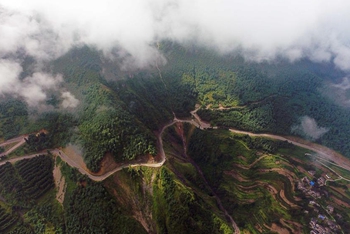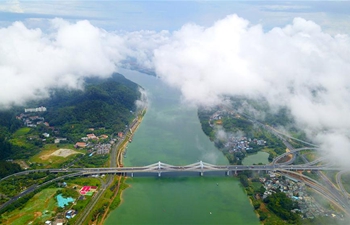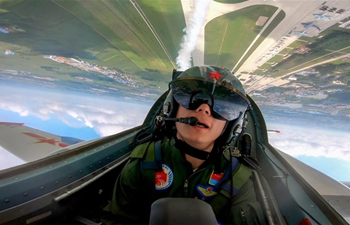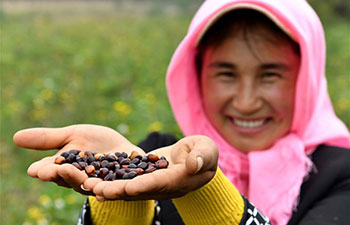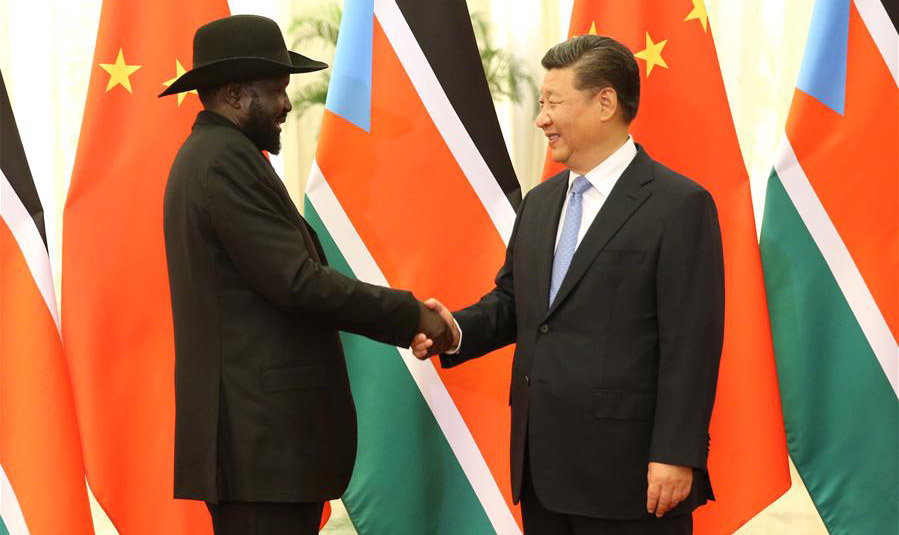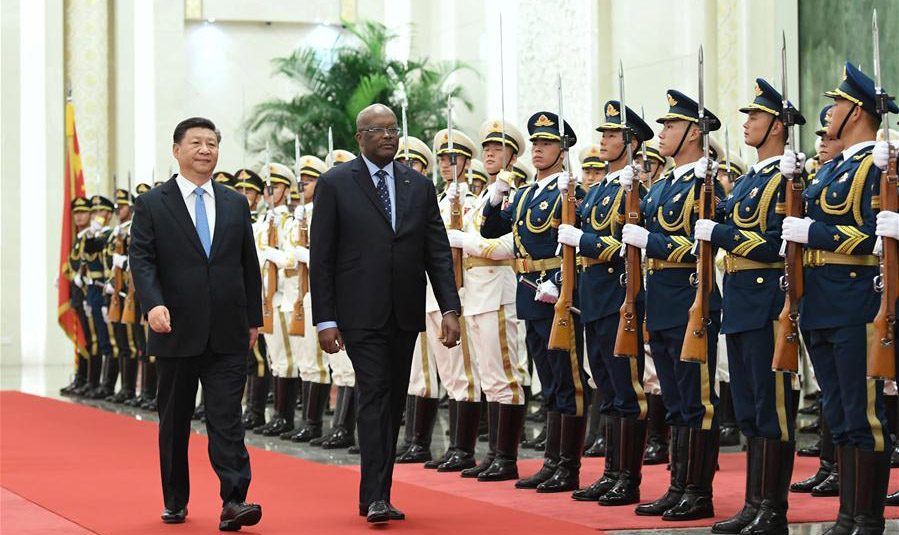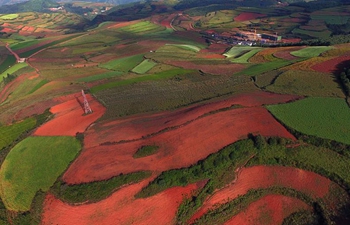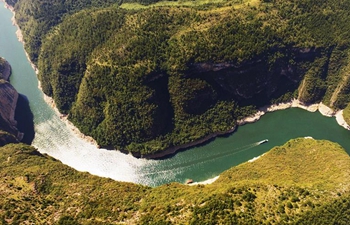PHNOM PENH, Sept. 1 (Xinhua) -- Conservationist groups on Saturday called for joint efforts to conserve vultures in Cambodia as the rare birds are currently on the edge of extinction due to poisoning, food shortages and habitat loss, according to a joint press release.
The groups including the Wildlife Conservation Society (WCS), the World-Wide Fund for Nature (WWF), the Angkor Center for Conservation of Biodiversity (ACCB), the BirdLife International and Cambodia Vulture Working Group made the calls as the International Vulture Awareness Day was marked.
They said the conservation of vultures could help reduce the spread of disease because they eat only the flesh of other dead animals and also generate income for local communities through ecotourism.
"Unfortunately, Cambodia's vultures are facing an increasingly high risk of extinction, as continuous monitoring surveys have shown a 50 percent decline in number since 2003," the release said.
"It is of great concern that only 121 of these majestic birds were recorded in this year's national census, the lowest number on record since 2003," it said. "Recent assessments indicate that poisoning is the major threat to vulture populations in Cambodia."
With global populations declining at an alarming rate, Cambodia's three vulture species, namely Red-headed (Sarcogyps calvus), Slender-billed (Gyps tenuirostris), and White-rumped (Gyps bengalensis), are all listed on the International Union for Conservation of Nature (IUCN) Red List as critically endangered.
"Northern Cambodia is the only place in Southeast Asia where vultures can still be found in large numbers, tourists come to see them at our vulture restaurant at Dong Phlet in Chhep Wildlife Sanctuary," said Simon Mahood, WCS's senior technical advisor.
But during the past five years, at least 30 vultures had been killed in Cambodia due to widespread indiscriminate use of deadly poisons and pesticides across the country, which was severely impacting the vulture populations and also threatening human lives too.
Besides poisoning, Cambodia's vultures suffer from habitat loss and food shortages caused by low numbers of wild ungulates -- a major food source for vultures -- and domestic cattle, the release said, adding that the increased levels of forest loss also negatively impact the birds through loss of nesting sites and reduction in natural prey availability.
"The low number recorded this year and the 50 percent decline since 2003 in Cambodia's vulture population are an alarming trend and we have to increase more efforts to address the root causes to this decline; otherwise, this important and rare bird species will be disappeared from the only place in Southeast Asia where we can still see them," said Seng Teak, WWF's country director.
Even more concerning news for Cambodian vulture conservation this year is that the veterinary drug diclofenac is now available in Cambodia, the release said, adding that in India, this drug is responsible for a decline of more than 90 percent of the country's vulture populations.
"If a cow or a buffalo had been treated with diclofenac shortly before its death and vultures then feed on the carcass, they will die as diclofenac is highly toxic to vultures, even in very small amounts," said Julia Stenkat, ACCB's veterinarian.
Bou Vorsak, Cambodia program manager of BirdLife International, said to save the birds from extinction, all kinds of conservation support and participation from local communities at vulture target sites, decision makers, and Cambodian people are needed.

